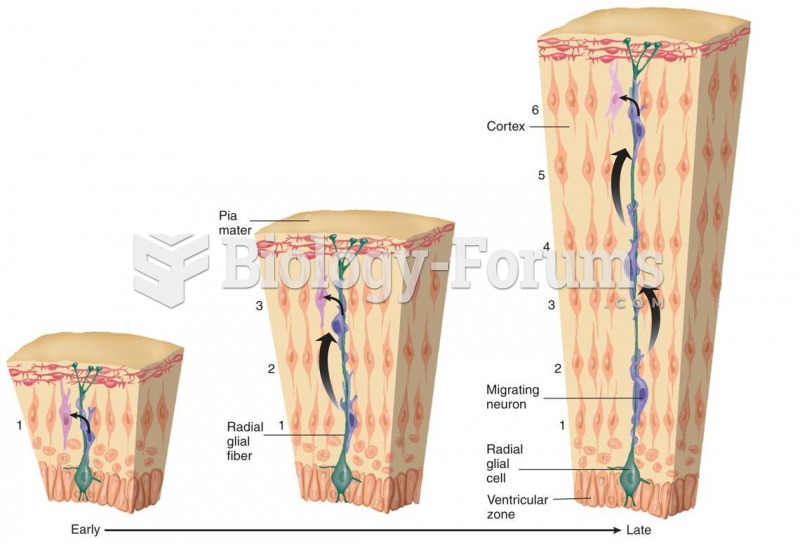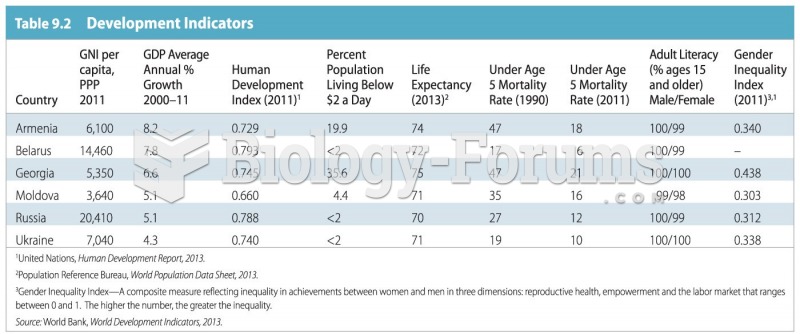|
|
|
The toxic levels for lithium carbonate are close to the therapeutic levels. Signs of toxicity include fine hand tremor, polyuria, mild thirst, nausea, general discomfort, diarrhea, vomiting, drowsiness, muscular weakness, lack of coordination, ataxia, giddiness, tinnitus, and blurred vision.
Increased intake of vitamin D has been shown to reduce fractures up to 25% in older people.
The ratio of hydrogen atoms to oxygen in water (H2O) is 2:1.
The term bacteria was devised in the 19th century by German biologist Ferdinand Cohn. He based it on the Greek word "bakterion" meaning a small rod or staff. Cohn is considered to be the father of modern bacteriology.
For pediatric patients, intravenous fluids are the most commonly cited products involved in medication errors that are reported to the USP.






